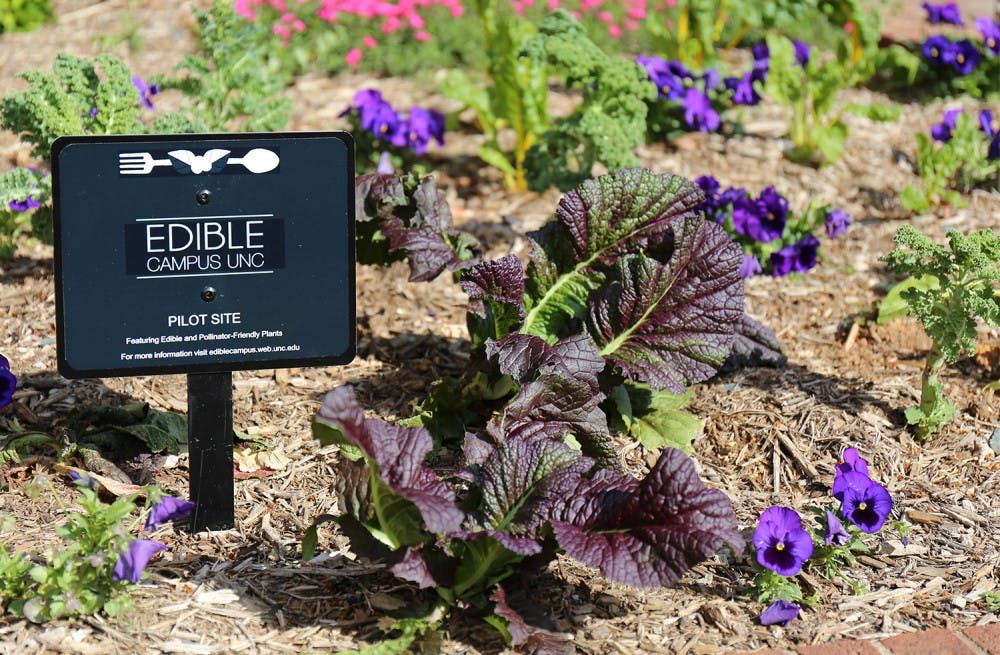Emily Auerbach, a Chancellor’s Fellow who runs the project, said the nine gardens are called satellite gardens. They’re only the first component of Edible Campus’ two-part project.
“So far we have nine of the satellite sites up and going and we’ve accomplished four planting days with a total of 136 participants,” she said. “Our best estimate is that we’ve gotten about 700 of these high-functioning plants installed over the course of the last year.”
She said they’ve worked with UNC Grounds Services to identify sites around campus where existing landscaping can be replaced or new landscape can be created that features edible or medicinal plants.
Auerbach said the second component will be a central demonstration garden called the Davis Library Edible Garden. She said Edible Campus will partner with local organizations to bring teens of color to the garden to learn about sustainable agriculture.
“We want plants that are easy for people to interact with that have lower entries, so people can harvest a snack on their way to class,” she said.
“But (we’re) also focusing on plants that are minimal maintenance, that don’t require pesticides, herbicides, fungicides, fertilizer and require very little irrigation, and that ties into the environmental ethics that we have at the program.”
Alice Ammerman is co-chairperson of the steering committee for Food for All, the University’s campus-wide theme. She said the idea is not to feed the campus but to create more awareness of what can be done with growing food.
“It’s not so much an effort to produce a lot of food, it’s not like it’s a farm,” she said. “It’s more sampling and tasting.”



